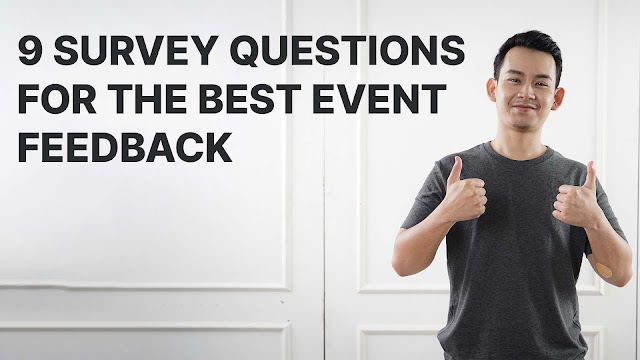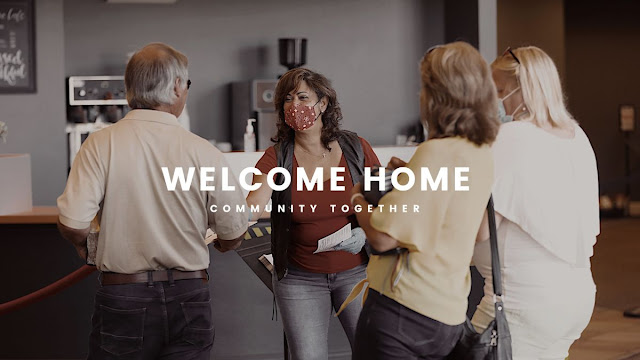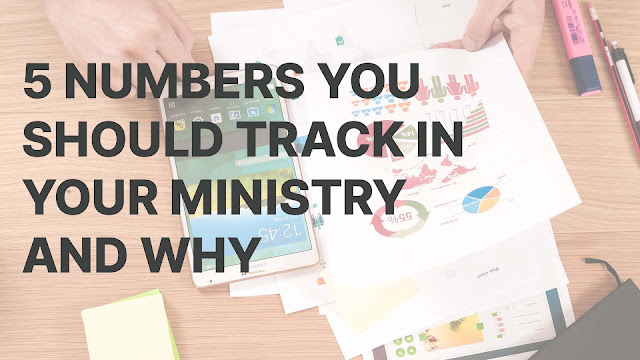9 Survey Questions for the Best Event Feedback
 |
| Photo by Afif Ramdhasuma on Unsplash |
Through the years, I’ve found collecting feedback increases my odds of creating success. There are a lot of tools out there to facilitate the collection of feedback, but the one I use for most events is surveys.
As part of my follow up process, which I write about here, I always send out an email thanking people for coming and inviting them to our next service or event. At the end of the email, I’ll include a link to a survey.
Because I’m asking for their time and opinion, I strategically provide the carrot of a gift card drawing between $25 and $50.
One time for budgetary reasons, I skipped the drawing. As a result, the survey responses were very low. By offering some kind of payment the response rate increases dramatically.
I’ve used Survey Monkey in the past with great success, so my advice will be based from there. However you can also use Google Forms or another form based website to collect your info.
Here are 9 survey questions to get the best feedback from your event.
1. Overall, how would you rate your experience of [the event]? Excellent, Good, Not Good at all
This first question is crucial to getting them to start your survey. It needs to be easy to understand and answer. A lot of people like to put scales like 1-5 or 1-10 to get people’s overall reaction, but in my experience the simpler, the better.What difference is there really from a 4 to 5 or 7 to 8?
I want the first response to be quick and simple, so it’s honest. I don’t want them fretting over a number. Their response here sets the tone for the rest of the survey.
Note: None of these questions are mandatory. I would love them to answer all of them, but people are busy and may skip a few and that’s ok. If you really want to require responses, make sure you don’t require the last question.
I include this question on all of my surveys. If the people who came to my event don’t think we’re friendly, they’re definitely not coming back.
Note: None of these questions are mandatory. I would love them to answer all of them, but people are busy and may skip a few and that’s ok. If you really want to require responses, make sure you don’t require the last question.
2. How would you rate the friendliness of [your church]? Excellent, Good, Not Good at all
Similar to the responses above I want a simple and concise answer instead of trying to decipher why they rated my friendliness a 9 instead of a 10.I include this question on all of my surveys. If the people who came to my event don’t think we’re friendly, they’re definitely not coming back.
If I get a negative answer, then I’m going to dive deeper into the survey in hopes of finding out exactly why they didn’t think we were friendly and make a plan to improve in the future.
To create this question, I usually put as many different aspects of the event as possible. Many times, Survey Monkey flags it saying there are too many and the survey will be abandoned. I’ve never seen that happen, so I take their advice with a grain of salt.
For each element, I ask them to rate it on a similar scale that I used for the previous two questions. In addition, I add an N/A option, so my answers aren’t skewed when someone just gives an answer to move on. You can see a sample of this question from my 2019 VBS Participant Survey below.
3. Please rate the following elements of our [event].
In Survey Monkey, I use what’s called a matrix question. In the free version, I’m limited to only 10 questions, which means I can’t ask about each element of the event. The matrix format helps me do this, but in one large question.To create this question, I usually put as many different aspects of the event as possible. Many times, Survey Monkey flags it saying there are too many and the survey will be abandoned. I’ve never seen that happen, so I take their advice with a grain of salt.
For each element, I ask them to rate it on a similar scale that I used for the previous two questions. In addition, I add an N/A option, so my answers aren’t skewed when someone just gives an answer to move on. You can see a sample of this question from my 2019 VBS Participant Survey below.
 |
| My Matrix question from a 2019 VBS Participant Survey |
These next two questions are where the real feedback begins and contain the best ideas for next year.
4. What was your kid(s) favorite part of [the event]?
Since most of my events have been for kids, I ask the parents about their kids’ opinion. The kids favorite part is frequently different from the parents. I want to know what’s working and should be repeated.Once I close the survey, I’ll compile all of the responses to find patterns and common threads. This is super helpful when I’m in next year’s planning and trying to figure out what to make better and what to cut.
5. What could we do to improve [the event] next year?
Similar to question 4, I want to get their honest opinion. However, I pose this question positively so I can get workable information.In the past, I’ve asked this question by saying “What was your kids’ least favorite part?” A lot of times the feedback was not constructive and left me with more questions than answers.
When I asked the same question positively, I got more actionable intel and didn’t want to go cry in a corner... most of the time.
When I was running VBS in Montgomery, I knew we had “church-hoppers.” These kids went to every VBS in the city and weren’t prospects for attending our church. However, I knew that they talked to their friends, so my goal was to be the church they’d recommended to families only attending one.
It was a noble goal and pushed us to be better every year. This question helped me measure our success.
If someone says yes to this question, then it’s game on. This is what the sales world calls a warm lead, and I make sure they don’t slip through the cracks in the rest of the follow up process.
Note here that a lot of the people who do attend your church will answer yes to this question for obvious reasons. Weed them out before you continue.
The answer to this question was super helpful in staff meetings when my ad spend on Facebook and Google were called into question. Since I knew how many attendees engaged with these types of ads (usually 5-10%) I could defend my position and quiet the critics.
You want to know that you’re spending your money wisely, asking this question helps you determine that.
6. Would you recommend [the event] to a friend? Yes or No
If they’re not going to recommend your event to a friend, then something went terribly wrong. You need to find out why and do some damage control.When I was running VBS in Montgomery, I knew we had “church-hoppers.” These kids went to every VBS in the city and weren’t prospects for attending our church. However, I knew that they talked to their friends, so my goal was to be the church they’d recommended to families only attending one.
It was a noble goal and pushed us to be better every year. This question helped me measure our success.
7. Do you plan to attend [your church] in the future? Yes or No
A lot of Christians who are already plugged in to other churches will attend your events and that’s ok. But if someone says no to this question, then they’re probably a church-hopper or were unhappy with your event. In either case, trying to connect with them and attend your church with further follow-up measures will probably be a waste of time.If someone says yes to this question, then it’s game on. This is what the sales world calls a warm lead, and I make sure they don’t slip through the cracks in the rest of the follow up process.
Note here that a lot of the people who do attend your church will answer yes to this question for obvious reasons. Weed them out before you continue.
8. Mark any and all of the options below that influenced your decision to attend [your event]
This is a marketing question. I list all the ways I marketed my event and allow them to pick as many as they’d like. I then compile all the responses to figure out what’s working and what’s not.The answer to this question was super helpful in staff meetings when my ad spend on Facebook and Google were called into question. Since I knew how many attendees engaged with these types of ads (usually 5-10%) I could defend my position and quiet the critics.
You want to know that you’re spending your money wisely, asking this question helps you determine that.
9. Thank you for filling out our survey! If you'd like to be entered in to win a [$25 - $50] [Visa or Amazon] Gift Card, please fill out the information below. (We will select a winner on [future date])
This is not really a question, but it enters the person into the drawing since all the questions thus far have been anonymous.
Usually 80-90% of my respondents answer this question with their name, email, and phone number. Be sure to never make this question required. The ones who want to remain anonymous will abandon your survey, and you’ll never get their feedback.
The added bonus of this question is you now know how they answered each question and can follow up with them personally.
There have been times when I’ll add in a tenth question to ask about a change I’m already contemplating such as hosting VBS during the day instead of night or having our fall festival on Halloween or over the weekend. Even though these events are a year out, their preliminary opinion helps to shape my thinking for the next year.
The added bonus of this question is you now know how they answered each question and can follow up with them personally.
There have been times when I’ll add in a tenth question to ask about a change I’m already contemplating such as hosting VBS during the day instead of night or having our fall festival on Halloween or over the weekend. Even though these events are a year out, their preliminary opinion helps to shape my thinking for the next year.
I usually leave the survey open for two to four weeks and send follow up emails reminding them to take the survey. Using Mailchimp, I can sift out the ones who’ve clicked the link and make sure they don’t receive further reminders to take the survey.
I’ve found that collecting feedback is invaluable, and these survey questions do a great job of facilitating it. By knowing what’s working and not, I can improve future events and expand our effectiveness.
How do you collect feedback? What works for you?
I’ve found that collecting feedback is invaluable, and these survey questions do a great job of facilitating it. By knowing what’s working and not, I can improve future events and expand our effectiveness.
How do you collect feedback? What works for you?




Comments
Post a Comment